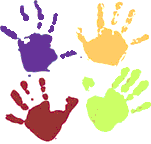Special Education and Communication Disorders, Department of

Department of Special Education and Communication Disorders: Faculty Publications
Document Type
Article
Date of this Version
1-2-2020
Citation
2020 Author(s)
Abstract
This study evaluated the development of vocabulary knowledge over the course of two academic years, beginning in preschool, in a large sample (N = 944) of language-minority children using scores from single-language vocabulary assessments and conceptual scores. Results indicated that although children began the study with higher raw scores for Spanish vocabulary knowledge than for English vocabulary knowledge, this was reversed by the end of the first year of the study. Similarly, at the beginning of the study unique Spanish vocabulary scores were larger than unique English or shared Spanish-English vocabulary scores; however, by the end of the first year of the study children’s shared Spanish-English vocabulary scores were larger than unique English vocabulary scores, which were larger than unique Spanish vocabulary scores. These trends continued through the second year of the study. These results suggest that conceptual scoring is a useful assessment technique for children with limited exposure to their second language. Implications for assessment and instruction are discussed.


Comments
J Child Lang. 2018 July ; 45(4): 1006–1017. doi:10.1017/S0305000917000538.